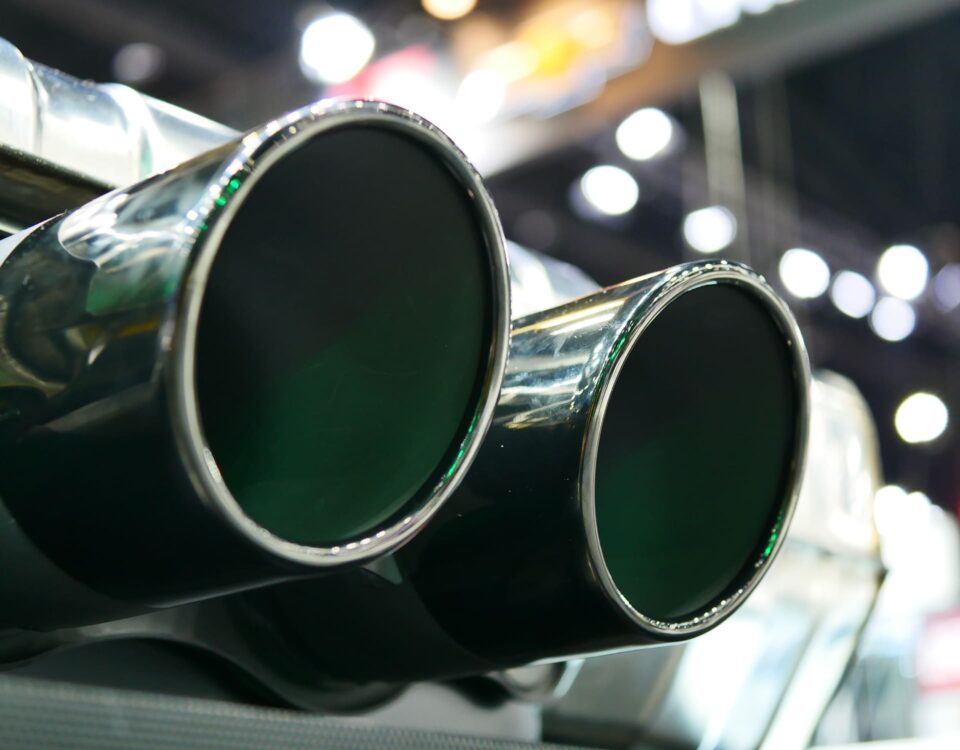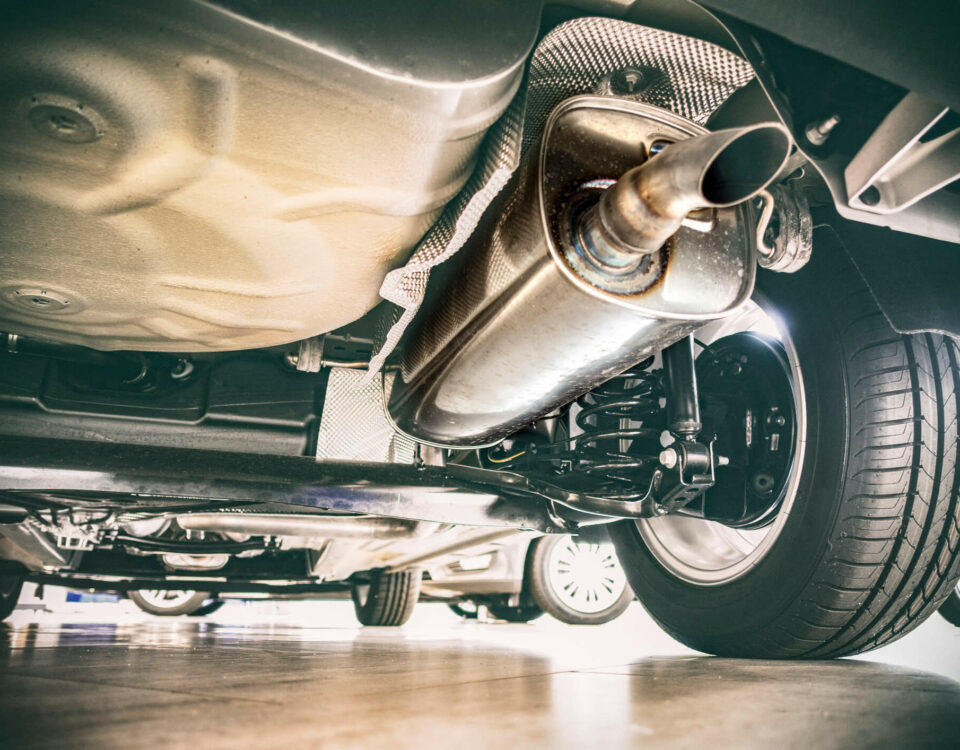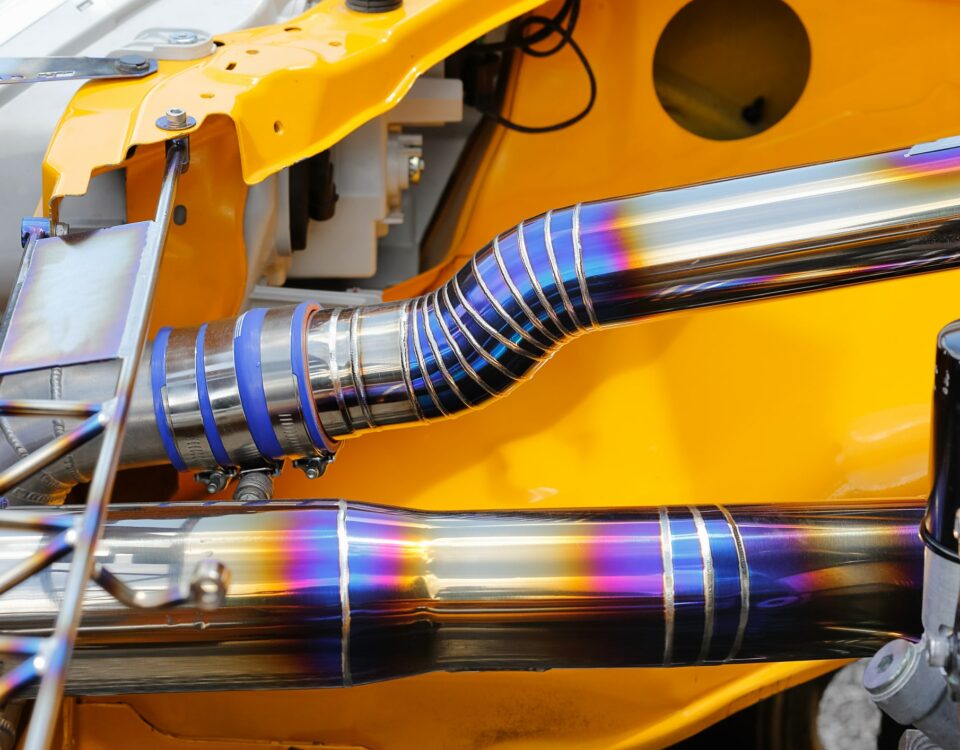Aluminum Exhaust vs Stainless Steel – Which Sounds Best
A source of pain, pleasure and confusion for many motorists, the common exhaust system can be tuned to perform its duties silently or with a great roar to please the inner boy racer. Whether you have a near-silent stainless-steel exhaust or an amplifying aluminium model, the debate over which material makes the best exhausts still rages on…
As you may already know, stainless steel is world-renowned for its durability and tensile strength, though aluminium is much lighter at the cost of reduced durability. This trade-off between strength and weight means that aluminium exhausts offer benefits that stainless-steel exhausts simply cannot match, though neither is superior overall.
Aluminium Exhaust vs Stainless Steel – Which is Better?
What is the Best Metal for Exhaust?
Because a car’s exhaust system has to deal with dramatic temperature changes and harmful chemicals regularly, it needs to be made of a resistant, durable metal. Historically, exhausts have been made from cast iron or mild steel, but modern stainless steel alloys are much better suited to the conditions that your exhaust system needs to endure.
While stainless-steel exhausts are incredibly common, some performance cars – such as those designed to be as light or as fast as possible – use aluminium exhausts for their lower weight. However, this lower weight comes at a cost, as aluminium is softer and more reactive than stainless steel, meaning it is more likely to rust or bend before an equivalent steel exhaust.
WHICH IS BETTER, ALUMINUM OR STAINLESS-STEEL EXHAUST?
Because of their very different properties and advantages, arguments over aluminium vs stainless steel exhausts are down to personal preference almost as much as technical specs. For example, aluminium exhausts are often cheaper, as the sofer metal is easier to mould and cut than stainless steel, although they are more susceptible to corrosion and physical damage.
Another factor to consider is that aluminium conducts heat far more effectively than steel, meaning that exhausts made with this material are far more likely to overheat than stainless-steel exhausts. So, while aluminium might be a lot cheaper and lighter than steel, you should consider your mechanical requirements and the wear and tear it’ll be subjected to before buying a replacement that may break quicker than the original part.
WHICH STAINLESS STEEL IS BEST FOR EXHAUST?
Because stainless steel is a complex alloy rather than a clearly defined material, there are many variations in the makeup and finish of stainless steel exhausts. Most are coated with chromium, nickel and manganese to resist corrosion, and two common types of stainless steel used in the construction of exhausts are 304 and 409 steel.
304 steel contains at least 16% chromium content to resist corrosion, while 409 steel contains higher levels of carbon and lower levels of chromium, resulting in greater heat resistance and strength. Although both types of steel have unique benefits, we believe that stainless steel exhausts made from 409 steel are superior, thanks to their improved heat resistance and tensile strength, though you must take care to minimise rust with regular maintenance.
WHAT IS THE LOUDEST TYPE OF EXHAUST?
Stock exhausts include a variety of noise dampening parts (such as mufflers) to comply with sound limiting legislation, so you’ll have to make some aftermarket modifications if you want your car to roar. Some of these modifications are very simple, such as replacing the tip of your exhaust or removing your car’s muffler, which results in an exhaust system known as a straight or straight-back system.
Whatever type of metal your exhaust is made from, the best way to make more noise is by removing as many filters, baffles or mufflers between your engine and the tip of your exhaust as (legally) possible. If you can remove most of the obstructions that were reducing the noise of your engine and fit your exhaust with an amplifying tip, then you’ll be disturbing the neighbours in no time!
HOW LONG WILL AN ALUMINISED EXHAUST LAST?
Aluminised steel is a type of steel that has been coated in an aluminium-silicon alloy for improved durability and corrosion resistance, but how does it compare to stainless steel for longevity? Well, that all depends on how much you use your car and the weather conditions in your area.
If you regularly drive your car through the Scottish Highland, then sharp gravel and harsh weather conditions may scratch off the aluminium coating and cause it to rust out in as little as two years. However, if you avoid off-roading and regularly service your exhaust, a good aluminised exhaust can last as long as stainless-steel exhausts.
Conclusion
While both types of exhaust systems are serviceable and can give you years of solid performance with the proper care and attention, you should try to weigh up the pros and cons before replacing your vehicle’s exhaust system. Aluminium exhausts may be cheaper and lighter than stainless-steel exhausts, but they are more liable to wear and tear, so the replacements may cost you more money in the long run…



